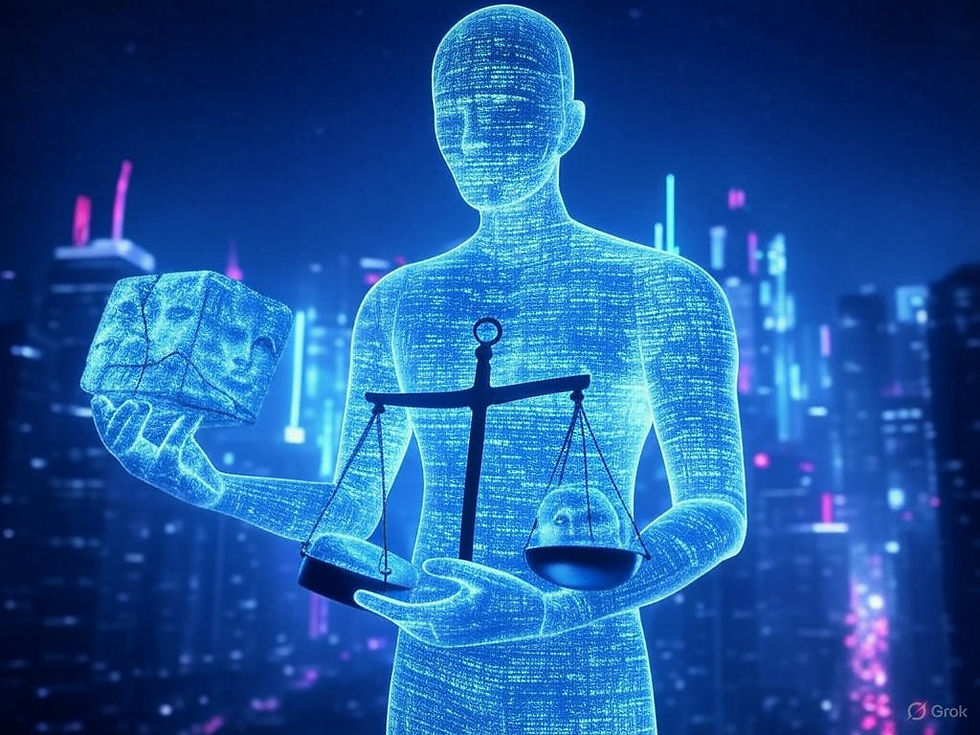AI Ethics: Navigating the Moral Maze of Tomorrow’s Technology
- AI Artisan
- Mar 23, 2025
- 2 min read

Artificial Intelligence (AI) is no longer a distant dream—it’s here, woven into our daily lives. From algorithms curating your social media feed to machines diagnosing diseases, AI’s capabilities are awe-inspiring. Yet, as this technology races forward, it drags a shadow of ethical questions behind it. How do we ensure AI serves humanity without compromising our values?
One pressing issue is privacy. AI thrives on data—our data. Every click, search, and post feeds its intelligence, but at what cost? Smart devices listen to our conversations, and facial recognition tracks our movements. The line between convenience and surveillance blurs, raising a chilling question: Are we trading our autonomy for efficiency?
Then there’s job automation. AI promises productivity, but it also threatens livelihoods. Factories hum with robotic arms, and chatbots replace customer service reps. While innovation drives progress, millions face displacement. Can society adapt fast enough to retrain workers, or will AI widen inequality?
Perhaps the thorniest dilemma is decision-making transparency. AI systems increasingly judge loan applications, hire employees, and even predict criminal behavior. But when a machine denies you a loan, can it explain why? These “black box” models often hide their reasoning, leaving us to trust—or distrust—decisions we don’t understand. Without accountability, bias festers, amplifying human flaws rather than fixing them.
The future of AI ethics isn’t bleak, though. Solutions are emerging: privacy-first designs, universal basic income debates, and “explainable AI” research. At xAI, for instance, the mission to accelerate human discovery comes with a commitment to responsible innovation. But it’s not just up to developers—policymakers, citizens, and even you reading this have a role in shaping AI’s moral compass.
AI is a mirror reflecting our choices. Will it amplify our best instincts or our worst? The answer lies in the questions we ask today.


Comments